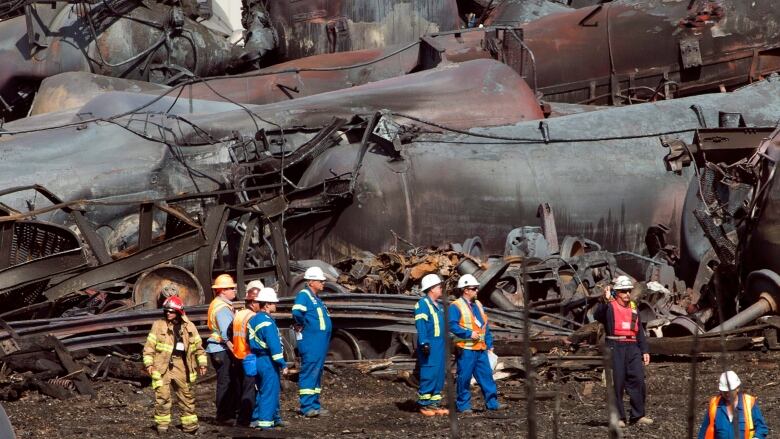Lac-Mgantic an 'environmental disaster,' says expert
Preliminary report on contamination has been released

An expert on hazardous material spills has calledthe Lac-Mgantic train explosion "the worst environmental disaster in Canadian history."
RosaGalvez,chair of the civil water engineering department at Laval University, saiddigging at the site of the blast shows the soil there is completely saturated with oil.
They ran hundreds of trenches and they sawfree petroleum coming and filling up the trenches, saidGalvez.
A preliminary report on the extent of the contamination was released yesterdayby the Montreal-basedGoldercompany, stating that more than 100,000cubic meters of soil will have to be excavated at the site of the derailment.
The report,made public Monday, is based on an investigation conducted by Golder between July 7 and Aug. 20.
Golder was initially hired by the Montreal, Maine & Atlantic Railway, owners of the train that crashed in Lac-Mgantic.
Golder now works for Pomerleau Inc., which is overseeing cleanup operations.
On July 6th, a train towing dozens of tanker cars derailed in the town, killing 47 people and releasing roughly 5.5million litres of oil that eitherburned or leaked into the environment.
Galvez saidpollutants have saturated several metres into the ground, withlevels are so high, people will not be able to live there until it's decontaminated.
She saidthe amount of soil that has to be treated could even increase.
In the report they recommend that they should extend monitoring to other areas to see if thereare other volumes of soils to be treated, said Galvez.
Galvez estimatedthe base cost of decontamination could be anywhere from $30to 50million.












_(720p).jpg)


 OFFICIAL HD MUSIC VIDEO.jpg)
.jpg)



























































































